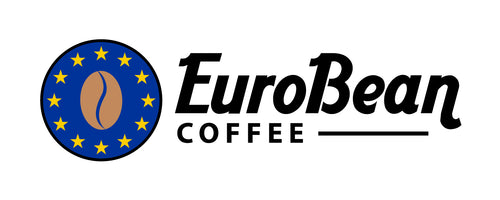The irresistible fragrance and flavor of coffee is undeniably one of the best parts to most people's mornings. Since the 15th century people have been enjoying this beverage widely in many different ways and has evolved to become a unique culture amongst local communities. In this blog post we will briefly discuss the history of coffee, coffee culture, Eurobean Coffee and the niche market of coffee lovers which we belong to.
Where did it come from? Coffee is a beverage with a rich and captivating history that dates back centuries. Its origin can be traced to the ancient coffee forests of Ethiopia, where the coffee plant, Coffea arabica, first flourished. According to legend, a goat herder named Kaldi discovered the energizing effects of coffee when he noticed his goats becoming lively after consuming the red berries from a certain tree. The news spread, and the knowledge of coffee's stimulating properties traveled across the Arabian Peninsula and beyond. By the 15th century, coffee cultivation and trade began in Yemen, where it gained popularity as a drink with medicinal and social significance. From there, coffee found its way to the bustling cities of the Ottoman Empire and the rest of the Middle East, becoming a pivotal part of their culture. In the 17th century, coffeehouses emerged as centers of intellectual exchange in Europe, most notably in cities like Venice, London, and Paris. Coffee's allure continued to spread, leading to the establishment of coffee plantations in various regions around the world, including the Americas, Asia, and Africa. Today, coffee remains a beloved beverage enjoyed by millions worldwide, and its journey from the Ethiopian highlands to every corner of the globe is a testament to its enduring appeal and cultural significance.
This is all exciting stuff -I know! But, why? Coffee is incredibly popular for several reasons. Firstly, its stimulating effect on the central nervous system makes it an ideal beverage for boosting alertness and combating fatigue. The presence of caffeine in coffee enhances cognitive function and promotes a sense of wakefulness, making it a favored choice for many individuals to kickstart their day or stay productive.
Moreover, coffee has a rich and diverse range of flavors, aromas, and preparations. From the strong and robust espresso shots to the delicate and nuanced pour-over brews, coffee offers a variety of tastes to suit different preferences. This versatility, coupled with the rituals of brewing and savoring coffee, contributes to its popularity.
Coffee culture refers to the social and communal aspects associated with coffee consumption. It encompasses the rituals, traditions, and behaviors surrounding coffee, which vary across different regions and communities. Coffee culture often includes practices such as meeting friends or colleagues at coffee shops, engaging in conversations over a cup of coffee, and even participating in coffee tasting events or competitions. It has become a significant part of people's social lives, a way to connect and bond with others.
Coffee culture is also closely tied to the concept of "third places," spaces that are neither home nor work but serve as gathering spots for social interaction. Coffee shops, with their cozy ambiance and comfortable seating, often become these third places, where people can relax, work, or engage in meaningful conversations while enjoying their favorite brew.
Furthermore, coffee culture extends beyond the act of consuming coffee itself. It encompasses the appreciation of coffee as an artisanal product, the exploration of different brewing methods and equipment, and the interest in learning about the origins and characteristics of coffee beans. It embraces the pursuit of quality and the craftsmanship of baristas, as well as the growing emphasis on sustainable and ethical sourcing practices.
In summary, coffee's popularity can be attributed to its energizing properties, diverse flavors, and the social connections and experiences it fosters. Coffee culture encompasses the rituals, social interactions, and appreciation surrounding coffee, making it more than just a beverage but a vibrant and cherished part of many people's lives.
NOW, let me introduce you to my coffee shop and wholebean coffee supply: Eurobean Coffee ltd. We are a small family owned and operated company located in the heart of the Okanagan Valley in British Columbia Canada. We are a European inspired coffeeshop who value the tradition in coffee! The notion of European coffee being the best kind is subjective and depends on personal preferences. However, European coffee has gained a reputation for its rich heritage, meticulous craftsmanship, and diverse range of flavors. Countries like Italy and France, with their longstanding coffee traditions, have perfected the art of espresso and brewing methods. The emphasis on quality, from the sourcing of premium coffee beans to the expertise of skilled baristas, contributes to the exceptional taste and aroma of European coffee. The European coffee culture, with its vibrant coffeehouse scenes and the value placed on savoring the beverage, adds to the overall experience. While coffee preferences vary globally, many coffee enthusiasts appreciate European coffee for its authenticity, craftsmanship, and the unique cultural elements it brings to the cup. For these reasons we created Eurobean Coffee. We hope that you are able to come in and experience our hospitality and our authentically inspired coffee.
If you have made it this far in the blog (which I greatly thank you for) and are further interested in discovering the traditional flavours of European coffee, follow this link to our store where you can find more information and purchase our premium arabica espresso beans "Mediterranean Medium Dark". Mediterranean Medium Dark Roast – Eurobean (eurobeancoffee.ca)
Thanks for reading!

